Posts by Breakstone, White & Gluck
What to Know About the the Graco Child Safety Seat Recall
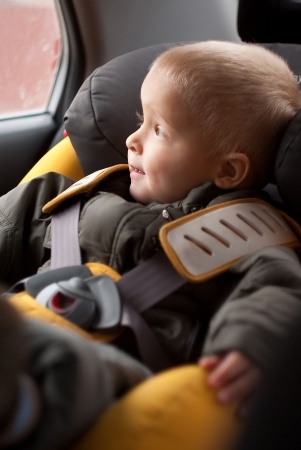 Parents across the country are checking their backseats after Graco issued one of the largest child safety seat recalls in history this week. It may not be the last recall either; the Georgia-based company is facing pressure from the National Highway Traffic Safety Administration (NHTSA) to recall 1.8 million additional seats.
Parents across the country are checking their backseats after Graco issued one of the largest child safety seat recalls in history this week. It may not be the last recall either; the Georgia-based company is facing pressure from the National Highway Traffic Safety Administration (NHTSA) to recall 1.8 million additional seats.
Graco recalled 3.7 million car seats manufactured between 2009 and 2013, the fourth largest recall ever for safety seats and the largest in five years, according to media reports. The NHTSA announced Tuesday that Graco was voluntarily recalling 11 models, though the agency had sought recalls of 18 models. The agency has stated it could take legal action to force the recall of the other models, which are rear-facing models for infants.
The car seats have defective buckles, which can be difficult to unlatch or become stuck. Graco said it was not aware of any injuries resulting from the car seat, but the New York Times reports the NHTSA began investigating Graco in 2012, after parents complained to regulators about having to cut children out of the seats from straps. One parent said it took her 45 minutes to loosen the straps enough to pull her daughter out.
But there is at least one case of serious injury. In a Jan. 14 letter to Graco, the NHTSA noted the company was a defendant in a wrongful death lawsuit in Los Angeles Superior Court in which a two-year-old child was killed in a fire following a car crash. The child was traveling in a Graco Nautilus car seat. The company has said the wrongful death case was resolved by a confidential settlement agreement.
Read the full list of recalled car seats. Parents who have defective car seats can contact Graco for a free replacement buckle. Graco says the seats are safe to use until parents obtain a replacement, but the NHTSA is urging parents to find other seats until they receive the new buckles.
Parents want to be able to trust the car seats, strollers and cribs they use to care for their children. Because these are important purchases, many parents and family members spend time researching and reading consumer reviews on Internet shopping sites such as Amazon.com before purchasing.
These reviews are helpful, as is feedback from other parents. But there are a few other steps parents can take:
Mail in the product registration. You want to make sure the company knows you have its product and need to be notified of any defect or recall and be included in the remedy process.
Do your research. Search the NHTSA database for car seat recalls.
Car seat inspection. Visit this NHTSA website page to search for sites where you can get your car seat inspected. Watch as the certified professional fits your child’s car seat and what to watch as you go about your daily driving routine.
Check your product. Remember a few basics about all children products, from toys to car seats. First, make sure they do not have small parts which can easily break and become a choking hazard. Make sure your child can move freely in seats with straps. Make sure the product can fully support your child by reading the age and weight requirements.
Read More
Buckle Up Massachusetts: State Fails to Win Top Safety Score from Watchdog Organization
 When it comes to seat belts, Massachusetts may need to buckle up and strengthen its laws if it wants a higher rating from one safety organization.
When it comes to seat belts, Massachusetts may need to buckle up and strengthen its laws if it wants a higher rating from one safety organization.
Massachusetts was among 29 states which received a secondary rating from the Advocates for Highway & Auto Safety in its annual report released in January. In the 2014 “Roadmap of State Highway Safety Laws” report, the group gave 10 states – including Rhode Island – its highest rating. Poor ratings were given to New Hampshire and 10 other states.
Massachusetts received strong marks for teen driving laws, but fell short in other areas, including its lack of a primary seat belt law.
In Massachusetts, the law governing seat belt use is M.G.L. c. 90 § 13A. Drivers and passengers are required to wear seat belts, but police can only issue citations for violations if they pull over a vehicle for another offense. Each driver and occupant over age 16 shall be fined $25 for failing to wear a seat belt. Drivers can be fined for occupants 12 to 16 years old. Children 12 and younger must follow the Massachusetts Child Passenger Safety Law, M.G.L. c. 90, §7AA.
Across the country, 33 states and the District of Columbia have primary enforcement laws for front seat passengers and 17 have these laws for back seat passengers.
The National Highway Traffic Safety Administration (NHTSA) has long cited seat belts as the most effective way to reduce the risk of death in a car crash. In 2012, the agency credits seat belts with saving 12,174 lives in auto accidents.
In Massachusetts, we have fiercely debated our seat belt laws. Gov. Michael Dukakis signed a mandatory seat belt law in 1985. But a year later, opponents organized a citizen campaign and repealed the measure at the ballot box.
While today’s law requires drivers and passengers to wear seat belts, in 2009 the NHTSA surveyed seat belt use across the country and ranked Massachusetts last for compliance.
At that time, 67 percent of occupants of vehicles in Massachusetts were wearing seat belts compared to the national average of 83 percent among other states.
Recent state figures report a greater compliance rate. The 2012 Massachusetts Safety Belt Usage Observation Study, prepared for Massachusetts Highway Safety Division reported a 73 percent compliance rate in 2011, an increase from 50 percent in 2000.
Attorney Ronald Gluck of Breakstone, White and Gluck stated that “fortunately, over the years, our firm has seen a significant reduction in cases where the injuries are directly tied to the failure of occupants to wear seat belts. ”
Related:
2014 Roadmap of Highway Safety Laws, Advocates for Highway & Auto Safety.
2012 Massachusetts Safety Belt Observation Study, Massachusetts Highway Safety Division.
Read More
Pedestrians Being Fined in Some U.S. Cities
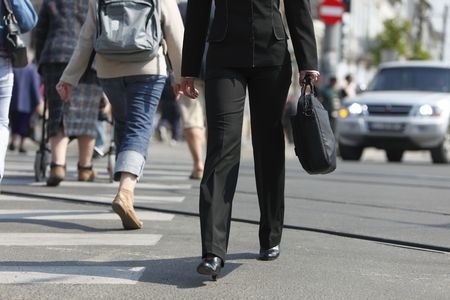 Pedestrians now have to watch out for more than just traffic in two major cities.
Pedestrians now have to watch out for more than just traffic in two major cities.
Jaywalking laws have traditionally gone unenforced in many cities, but New York City and Los Angeles are now telling pedestrians to follow the letter of the law or face citation. Pedestrians are surprised, and in some cases, are facing hefty fines for crossing the street before the traffic signal changes. One man in Los Angeles was ticketed $197 as he walked to work.
“I didn’t even know that was against the law,” he told the New York Times. “I was like, “You are the L.A.P.D., and this is what you are doing right now?”
New York City Police are taking the same steps. The city saw 12 pedestrian fatalities in January, prompting new Mayor Bill de Blasio to announce Vision Zero, a plan to eliminate traffic deaths within 10 years. Vision Zero focuses largely on drivers, but at the same time, New York City Police have started enforcing jaywalking laws.
Pedestrians have responded strongly against enforcement, both in Los Angeles and New York City. In Los Angeles, a lawyer who was ticketed as he walked to a local courthouse told the New York Times:
“Honestly, I cussed them out for about five minutes. I told them what a stupid waste of time this was, and wasn’t it great that they had two police officers standing there when there are obviously more important issues out there.”
In New York City, an 84-year-old man, Kang Wong, has filed notice he plans to sue the city and police department for $5 million. He alleges he was pushed against a wall and beaten as he was cited, sustaining head injuries and other trauma.
In New York City, three of the pedestrians were killed in the Upper West Side, near Broadway and 96th Street. They were a 9-year-old boy who was hit by a taxi as he crossed the street with his father, a young doctor struck by an ambulance outside her apartment building and a 73-year-old man hit by a tour bus.
After these deaths, the city installed electronic signs warning pedestrians to use the crosswalks. Police stood by with a bullhorn, citing pedestrians who violated jaywalking laws $40-$100.
Every city has an interest in this conversation, including here in Boston and Massachusetts. Our state sees an average of 86 pedestrian deaths each year, nearly one fifth of all traffic fatalities, according to WalkBoston, a non-profit advocacy organization which represents pedestrians and 75 cities and towns across the state.
But rather than ticket pedestrians, WalkBoston advocates for improving infrastructure and education. For instance, it notes that 90 percent of pedestrians killed are struck by cars traveling 40 mph compared to 5 percent who die by cars traveling at 20 mph. One way to encourage drivers to slow down is to reduce travel lane widths, the organization says.
Perhaps you are wondering what the fine for jaywalking is in Massachusetts. We hope you are sitting down: It is $1.00! But after three offenses, the fine doubles M.G.L. c. 90, § 18A. Municipalities won’t balance their budgets on jaywalking tickets, that’s for certain.
Related:
New York City takes aim at jaywalking, The Boston Globe.
Read More
Product Recalls in January: Baby Strollers, Walmart Table Sets
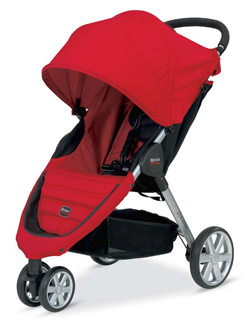 A few weeks ago, two young children in Franklin tragically died after becoming trapped in a defective wooden hope chest during a game of hide and seek. We follow reports of defective products carefully, and we now share some of the January product recalls issued by the Consumer Product Safety Commission (CPSC). That agency is charged with protecting the public from unreasonable risks of injury or death associated with consumer products.
A few weeks ago, two young children in Franklin tragically died after becoming trapped in a defective wooden hope chest during a game of hide and seek. We follow reports of defective products carefully, and we now share some of the January product recalls issued by the Consumer Product Safety Commission (CPSC). That agency is charged with protecting the public from unreasonable risks of injury or death associated with consumer products.
Britax Stroller Recall
Britax recalled 225,000 strollers last week due to the stroller’s folding mechanism, which poses a risk for partial fingertip amputation. The company had received eight incident reports, including one partial fingertip amputation, one broken finger and severe finger lacerations.
Consumers are advised to stop using the recalled strollers immediately and contact Britax for a free repair kit.
The recall involves these models: Britax B-Agile, B-Agile Double and BOB Motion Strollers. They were sold at major retailers and juvenile product stores nationwide from May 2011 through June 2013. They were also sold through Amazon.com, ToysRUs.com and other online retailers. They sold for between $250 and $450.
In recent years, Maclaren USA has also recalled strollers with hinges which posed an amputation risk. In 2009, Maclaren USA recalled one million strollers after 12 reports of fingertip amputations and three other incidents. The company re-issued the recall in 2011. By that time, it had received a total of 149 reports, including 17 reports of fingertip amputations and other injuries, including lacerations and fingertip entrapments/bruising.
Pacifier Recalls
There were two recalls related to pacifiers this month. On Jan. 22, Playtex recalled 1.25 million pacifier holder clips in the U.S. and 150,000 in Canada. These clips attach the pacifier to clothing, diaper bags and strollers.
Playtex received 99 reports of the holder cracking or breaking. No injuries have been reported. Consumers are advised to stop using the product and contact Playtex for a full refund.
Last week, Fred & Friends recalled three models of its “Chill Baby” pacifier line, including 183,000 in the United States and 17,000 in Canada. The pacifiers have novelty features which can detach and do not meet federal safety standards. No injuries have been reported but consumers are advised to stop using the pacifiers and return them to Fred & Friends for a $12 refund.
Gree Dehumidifier Recall Expanded
In September, Gree recalled 2.2 million dehumidifiers under 12 brand names because they posed a risk for fire and burns. It expanded this recall last week, adding another 350,000 dehumidifiers under the GE brand name in the U.S. and 2,700 in Canada. The company had received 16 reports of incidents, including 11 reports of overheating with no property damage and 5 reports of fires associated with $430,000 in property damage.
The previous recall was associated with more than 71 fires and $2,725,000 in property damage. No injuries have been reported.
These dehumidifiers were manufactured by Gree Electric Appliances of China and imported by GE Appliances of Louisville, Kentucky. They were sold from April 2008 through December 2011 at Sam’s Club, Walmart and other stores in the U.S. and Canada. They were also sold on Amazon.com and Ebay.com. They sold for between $180 and $270. Consumers are advised to stop using the dehumidifiers and contact Gree for a refund.
Walmart Card Table and Chair Sets Recalled
Walmart recalled its Mainstays five-piece card table and chair set earlier this month because the chairs can collapse and may pose a risk of finger injury, including amputation. The retailer received 10 reports of injuries, including one finger amputation, three fingertip amputations, sprained or fractured fingers and one report of a sore back.
These table sets were sold in Walmart stores and online from May 2013 through November 2013 for about $50. On the bottom of the chairs, they have a label which reads: “Made by: Dongguan Shin Din Metal & Plastic Products Co,” or “Made by: Taiwan Shin Yeh Enterprises”, is printed on a white label on the bottom of the chairs.
Consumers are advised to stop using this product and return to Walmart for a full refund.
Related:
Consumer Product Safety Commission website.
Strollers Recalled by Britax Due to Partial Fingertip Amputation Hazard, CPSC.
Gree Expands Dehumidifier Recall to Include GE Brand Dehumidifiers Due to Serious Fire and Burn Hazards, CPSC.
Read More
Lobbying for Civil Legal Aid in Massachusetts
The lawyers of Breakstone, White & Gluck lobbied their state legislators on Beacon Hill today in support of increased funding for civil legal aid as part of the annual Walk to the Hill 2014. The event, sponsored by the Equal Justice Coalition, draws lawyers from across the Commonwealth for a day of lobbying for the Massachusetts Legal Assistance Corporation, which provides legal aid for the poor and underserved.
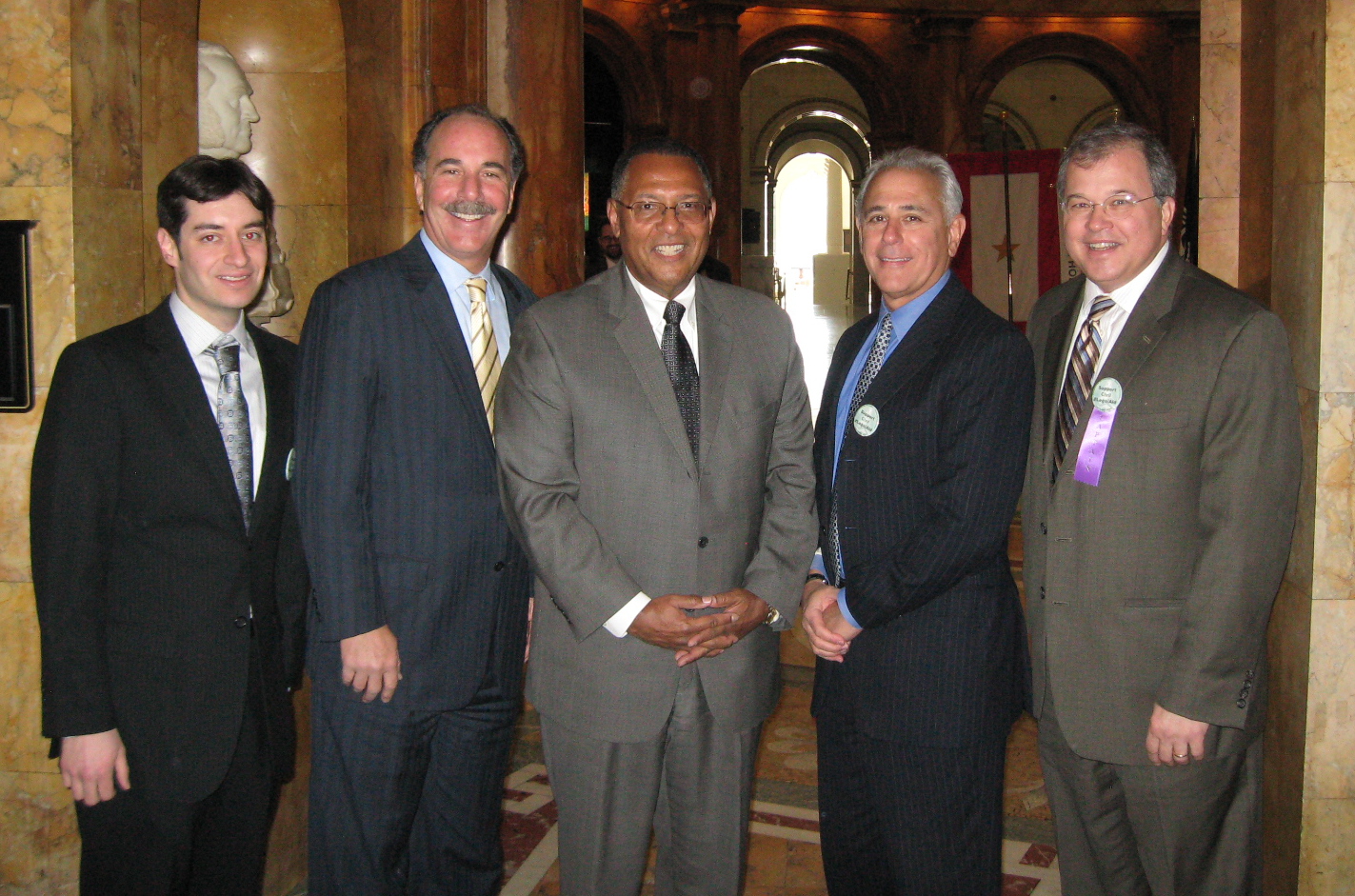
“The amount of funding for civil legal aid has suffered a decline in the last ten years; some sources of funding have dried up, costs have increased, and the legislature has been slow to fill the gap. We are asking our legislators to increase funding from $13 million in the last fiscal year to $17 million this year,” said David White. Governor Patrick has recommended only $14 million in his budget request.
Marc Breakstone explained that investing in legal aid actually saves the state money in the long run. “For example, legal service agencies can help find available Federal benefits which people are already entitled to, and can prevent people from being wrongfully evicted and becoming homeless,” he explained. “For example,” Breakstone added, “in Fiscal Year 2012, legal aid organizations unlocked over $70 million in new revenue and cost savings, all on a modest budget of $10.5 million.”
However, caseloads are increasing, staff is being cut, and the number of people who need legal services, but cannot receive them because of budget limitations, continues to increase.
“Massachusetts needs to continue its commitment to the poor and disabled,” said Ronald Gluck. “Considering the return on investment in legal aid, the issue should be a no-brainer,” he added.
For more information, visit the website of the Equal Justice Coalition, or the Massachusetts Legal Assistance Corporation.
Unsecured Load Causes Deadly Crash
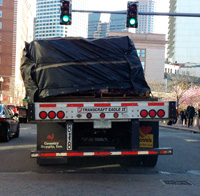 A Framingham motorist tragically lost her life yesterday when she slowed to avoid an unsecured mattress which flew off a truck on Rte. 128 in Burlington, Mass. Authorities believe the mattress broke free from a dump truck with a white cab occupied by two men. As the car slowed to avoid the mattress on the highway, a second car hit it causing fatal injuries.
A Framingham motorist tragically lost her life yesterday when she slowed to avoid an unsecured mattress which flew off a truck on Rte. 128 in Burlington, Mass. Authorities believe the mattress broke free from a dump truck with a white cab occupied by two men. As the car slowed to avoid the mattress on the highway, a second car hit it causing fatal injuries.
The truck operator did not stop at the scene or identify himself afterward. The victim had slowed her car, a Toyota Corolla sedan, and tried to avoid hitting the mattress. She was struck from behind by a Toyota Tundra pick-up truck. The Toyota Tundra pick-up truck driver suffered minor injuries. Police are looking for the driver of the dump truck, which left the scene.
Unfortunately, this was not an isolated case.
According to the AAA Foundation for Traffic Safety, there are approximately 25,000 crashes a year in North America related to unsecured loads, resulting in approximately 80-90 deaths. Here in Massachusetts, a 27-year-old Lynn man was killed in a similar accident in September 2011, when a 400-pound tire being hauled by a truck broke loose on Interstate 93 in Somerville.
Drivers have a responsibility to secure loads and operate safely, whether they are commercial or non-commercial drivers. All 50 states and the District of Columbia have statutes pertaining to unsecured loads and fines, which range from $10 to $5,000, according to the Government Accountability Office (GAO). In 15 states, violations carry the possibility of imprisonment. Drivers may also face civil lawsuits to compensate the injured and their family.
This may be the third serious truck-related accident in Massachusetts this week. On Sunday, a pedestrian in Uxbridge was struck and killed by an unknown driver. The driver of a tractor-trailer truck, who is employed by Gorham Transport, later contacted police and said he was in the area. Police are investigating.
On Monday morning, a tractor-trailer carrying 11,000 gallons of gasoline overturned in Fall River, engulfing in fire and requiring some to be evacuated. The driver was treated for non-life threatening injuries and the crash is still being investigated.
About Breakstone, White & Gluck
Our Boston truck accident lawyers have over 100 years combined experience representing individuals injured in tractor-trailer and commercial truck accidents. If you have been injured, learn your rights for seeking compensation. For a free legal consultation, contact us toll-free at 800-379-1244 or 617-723-7676 or use our contact form.
Commercial Truck Accidents Cause Thousands of Deaths Each Year
 A tractor-trailer overturned and caught fire this morning in Fall River, causing major traffic delays on Route 24 as well as evacuations.
A tractor-trailer overturned and caught fire this morning in Fall River, causing major traffic delays on Route 24 as well as evacuations.
The tractor-trailer, which was transporting 11,000 gallons of gasoline, overturned near Exit 5 northbound. Police report the driver was sent to Rhode Island Hospital with non-life threatening injuries. The truck was owned by J.P. Noonan of West Bridgewater. No other vehicles were reportedly involved. At this time, the cause of the truck accident is under investigation.
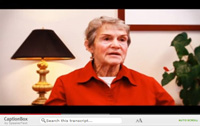 The trial lawyers of Breakstone, White & Gluck have extensive experience representing individuals who have been seriously injured in tractor-trailer accidents. Recently, we have obtained $3 million for a woman who was hit head on by an inattentive operator of an 18 wheeler. Below, an online review from another recent client who was rear-ended by a tractor-trailer and seriously injured:
The trial lawyers of Breakstone, White & Gluck have extensive experience representing individuals who have been seriously injured in tractor-trailer accidents. Recently, we have obtained $3 million for a woman who was hit head on by an inattentive operator of an 18 wheeler. Below, an online review from another recent client who was rear-ended by a tractor-trailer and seriously injured:
Today’s accident points to the fact that truck accidents are too common on our roads. In 2014, Massachusetts has already seen at least two serious tractor-trailer accidents, including one last week on the Mass Turnpike in Palmer and another in Oxford earlier this month.
The Oxford accident sent two people to the hospital with life-threatening injuries. In 2012, over 3,500 people died in large truck crashes in the U.S., according to the Insurance Institute for Highway Safety (IIHS). The majority – 67 percent – were passenger vehicle occupants. Truck occupants accounted for 17 percent of deaths and the remaining 15 percent of deaths were pedestrians, bicyclists and motorcyclists.
Truck drivers have special licensing requirements and regulations to follow. Trucks are harder to control than passenger cars and have much longer stopping distances. According to IIHS, loaded tractor-trailers take 20-40 percent farther to stop than cars and even more distance in poor weather conditions or if a truck has poorly maintained brakes.
To prevent driver fatigue, drivers of large trucks must follow federal regulations restricting their time behind the wheel. They are subject to federal hours-of-service regulations, a maximum of 11 hours of driving after 10 consecutive hours off-duty, according to the Federal Motor Carrier Safety Administration.
Truck companies must also follow regulations for inspection, repair and maintenance of their vehicles and not operate any vehicle which is likely to cause an accident or breakdown.
Attorney David White Discusses Product Recalls on Fox 25 TV
Last weekend, two young children in Franklin tragically died after getting trapped in a defective wooden hope chest during a game of hide and seek. The chest was one of 12 million manufactured by the Lane furniture company of Virginia between 1912 and 1987.
Attorney David White from the Boston product liability firm, Breakstone, White & Gluck, commented on ways consumers can avoid injuries from defective products, including second-hand goods.
According to reports, the Franklin children were probably playing a game when they got into the chest and the lid closed. The lid automatically latched shut when closed and could not be opened from the inside. When the family purchased the second-hand chest 15 years ago, they had no warning of the defect or the fact that the product had been recalled.
Boston News, Weather, Sports | FOX 25 | MyFoxBoston
The chests were recognized as defective after four children were trapped in them and died prior to 1996, leading to a product recall 1997. In 2001, Lane paid a $900,000 civil penalty to the Consumer Product Safety Commission (CPSC) to settle claims that it had provided late notice of the deaths to those four children.
Even after the recall, probably six million of the chests still have the defective locks. Although there have been sporadic efforts to notify the public of this widespread and serious hazard, it is not clear how aggressively Lane has tried to make sure the defective latches are either removed or replaced.
White, a Boston attorney who specializes in injury and liability cases, said companies have a responsibility to inform clients of recalls and stores have a responsibility not to sell recalled products, but sometimes consumers still do not receive notice, including in cases involving products purchased in second-hand stores. He said defective products are causing injury.
White told Fox 25 that the problem is no one registers a hope chest with a company as they would an electronic product such as a new television. His safety tips:
1) Consumers can learn what hazard signs to look for in products and remove unsafe products on their own, even if they have not been recalled.
2) A few products to watch carefully:
- Cribs, car seats, bassinets, strollers and other products which hold babies.
- Products with small pieces that break off.
- Novelty toys with magnets which children can easily swallow. These have been recalled.
3) Consumers can check the CPSC website for recalls.
4) Read age-appropriate labels on toys. Your younger children may not be old enough to play with their older siblings’ toys.
Read More
What Target Shoppers Can Do Following Massive Data Breach
 If you are a Target shopper, you are likely watching your debit or credit card account closely these days. This is a good start, but there are other important steps you can also take following the retailer’s massive data breach, now estimated to have impacted at least 70 million customers. The data breach occurred at Target’s retail stores between Nov. 27 and Dec. 15. Hackers stole customer names, credit and debit card numbers, the card’s expiration date and CVV, the three-digit security code. Online holiday shoppers were not involved.
If you are a Target shopper, you are likely watching your debit or credit card account closely these days. This is a good start, but there are other important steps you can also take following the retailer’s massive data breach, now estimated to have impacted at least 70 million customers. The data breach occurred at Target’s retail stores between Nov. 27 and Dec. 15. Hackers stole customer names, credit and debit card numbers, the card’s expiration date and CVV, the three-digit security code. Online holiday shoppers were not involved.
What to do if you were impacted:
Monitor your accounts. Be vigilant and monitor all your financial accounts regularly over the next 12 to 24 months. If you notice any irregular activity, notify the credit card issuer or your bank immediately.
Make contact now. Ask your bank or credit card company’s fraud department to also closely monitor your account.
New card and account number. Ask your bank or credit card company about changing your pin number and whether you should have a new card issued.
Contact Target. The company says customers have zero liability for any fraud resulting from this data breach and are offering free credit monitoring and identity theft protection for impacted customers. Learn more.
Obtain your credit report. You are entitled to one free credit card report each year from one of the three major credit bureaus, Equifax, Experian or TransUnion.
One-call fraud report. Call any of the three major credit bureaus and place a one-call fraud alert on your credit report. This requires creditors to contact you before opening any new accounts or increasing your credit card limits. The fraud alert will stay on your account for at least 90 days.
Extended fraud alert. If your credit report reveals suspicious activity, you can file a report with your local police department and have an extended fraud alert placed on your credit report. This will provide additional protection for seven years.
Security freeze. You also have the right to place a security freeze on your consumer credit report. This stops consumer-reporting agencies from releasing any information in your credit report without your express authorization.
Beyond the financial risk, identity theft can create many hours of work for victims trying to straighten out accounts and identify where breaches occurred. Read the resources below to learn how to protect yourself.
Related:
Identity Theft, Federal Trade Commission.
Lost or Stolen Credit, ATM, and Debit Cards, Federal Trade Commission.
Protecting Against Credit Card Fraud, Federal Trade Commission.
Read More
Dietary Supplements Are Not a Cure for Concussions, FDA Says
 The Food and Drug Administration (FDA) is warning parents and others concerned about sports concussions that certain dietary supplement makers are making false claims.
The Food and Drug Administration (FDA) is warning parents and others concerned about sports concussions that certain dietary supplement makers are making false claims.
The FDA issued a Dec. 31 warning, advising consumers to avoid dietary supplements claiming to prevent or treat concussions and other traumatic brain injuries (TBI). The common claim is the dietary supplements promote faster healing times after a head injury. But the FDA said there is no scientific evidence to support this claim and it has the potential to cause serious injury. Athletes who return to play too soon because they believe they are cured risk long term health consequences. Repeated injuries which do not fully heal can cause brain swelling, permanent brain damage and long-term disability. They can also be fatal.
Over the past several years, many states have passed legislation to protect student athletes and professional sports leagues have made changes to protect players. In August, the National Football League (NFL) reached a $765 million settlement with 4,500 former players who suffered long-term injuries from concussions. Some of the money will help fund new research into chronic traumatic encephalopathy (CTE). This condition, which causes mental impairment, aggression and dementia, is linked to repeated hits to the head. But it can currently only be diagnosed after death.
In its recent update, the FDA also broadly warned consumers about all products labeled as dietary supplements which are marketed to cure, mitigate, treat or prevent disease. Dietary supplements are regulated differently than other food products and drugs.
There are over 85,000 supplements available today, but they require no approval before going to market. Under the Dietary Supplement Health and Educational Act, the manufacturer is responsible for ensuring a product is safe before going to market and the FDA can take action against any unsafe product after it starts being sold.
Dietary Supplement Companies
In this case, the FDA acted on a tip from the U.S. Department of Defense and conducted market surveillance. It found two companies making improper claims: PruTect Rx of Highlands Ranch, Colorado and Trinity Sports Group Inc. of Plano, Texas. It issued warning letters in September 2012 and both companies changed their websites and labeling.
But in December 2013, the FDA had to warn a third company, Star Scientific, Inc. for marketing a product called Anatabloc with claims to treat TBIs.
Consumer Warning
The FDA said consumers may come across these dietary supplements on the Internet, social media sites such as Facebook and Twitter and retail outlets. They often promise to heal TBIs with ingredients such as turmeric, an Indian spice, and high levels of omega-3 fatty acids derived from fish oil.
Related:
Can a Dietary Supplement Treat a Concussion? No., FDA Update.
Dietary Supplements, FDA.
Read More

